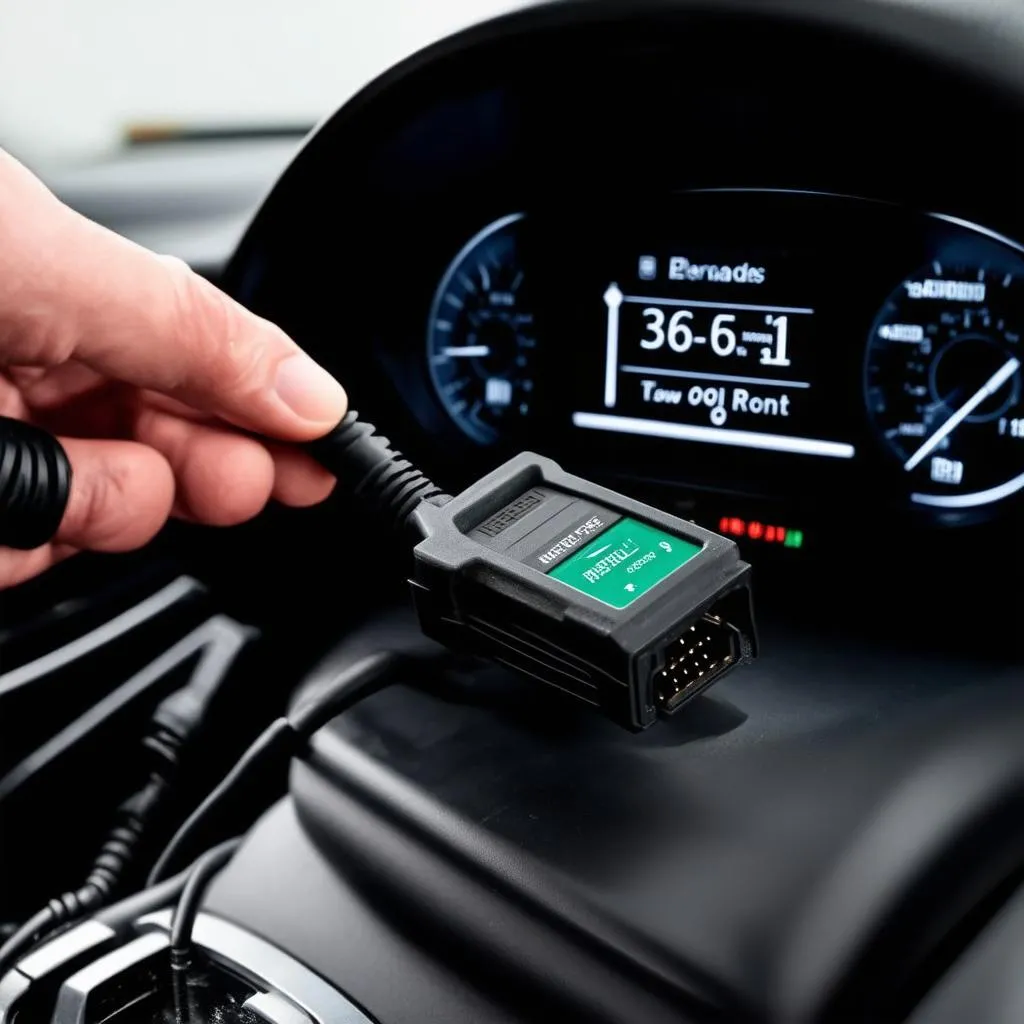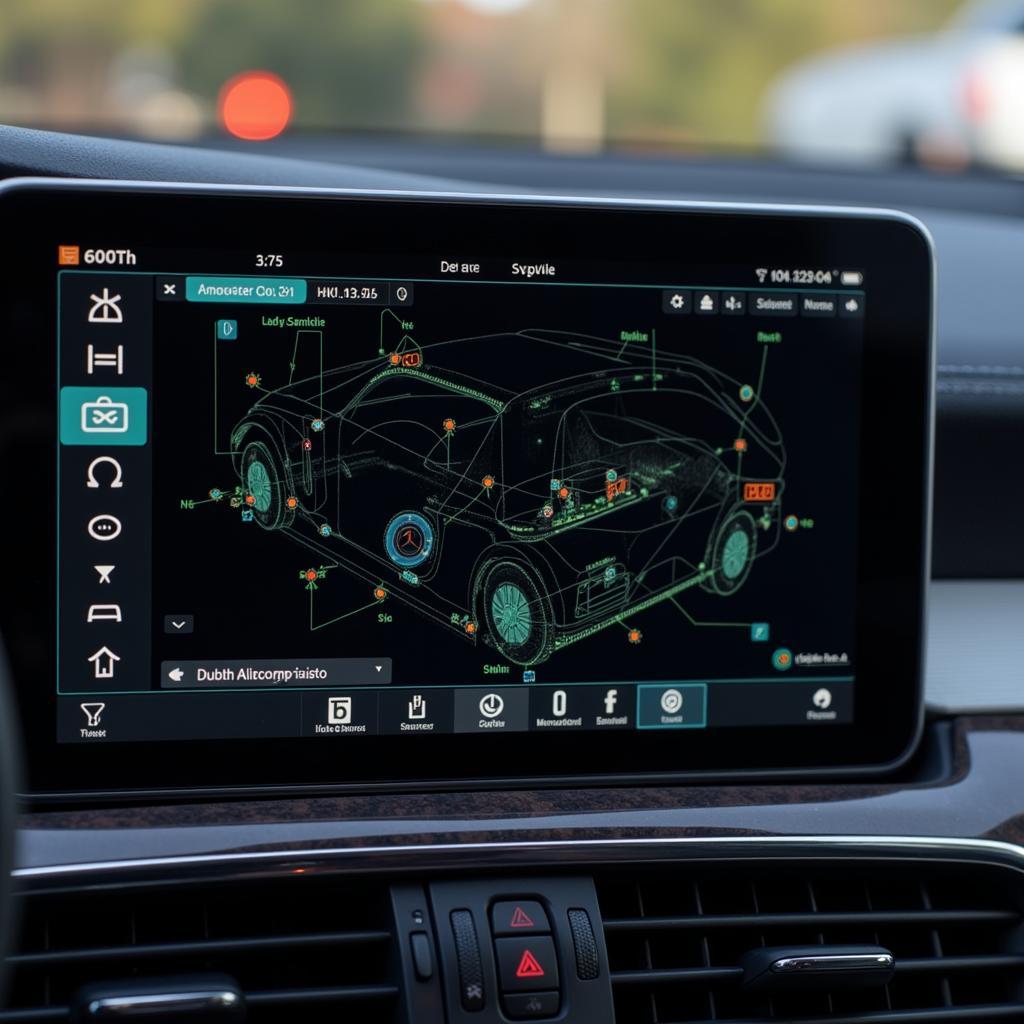Dealing with brake issues on your Mercedes-Benz E320 can be frustrating. Whether it’s a squealing sound, a soft brake pedal, or a warning light on your dashboard, understanding the problem and how to fix it is essential for your safety and the longevity of your vehicle. This guide provides a comprehensive overview of common brake problems in the E320 and how to address them, ranging from simple DIY fixes to more complex repairs that may require professional assistance.
Understanding Your E320’s Braking System
The Mercedes-Benz E320 boasts a sophisticated braking system designed for optimal performance and safety. It’s a complex interplay of components, including brake pads, rotors, calipers, brake lines, and sensors, all working in harmony to bring your vehicle to a stop. Understanding how these parts function together is the first step in diagnosing and fixing any brake service issues. A key element is the Sensotronic Brake Control (SBC) system found in many E320 models. This electronically controlled hydraulic braking system offers enhanced safety features but also presents unique diagnostic challenges.
Common Brake Problems in a Mercedes-Benz E320
Several issues can arise with the braking system in an E320. These include worn brake pads and rotors, leaking brake fluid, a malfunctioning SBC system, or issues with the ABS (Anti-lock Braking System). Each of these problems manifests differently and requires a specific approach to fix. Identifying the symptoms is crucial to pinpoint the underlying cause.
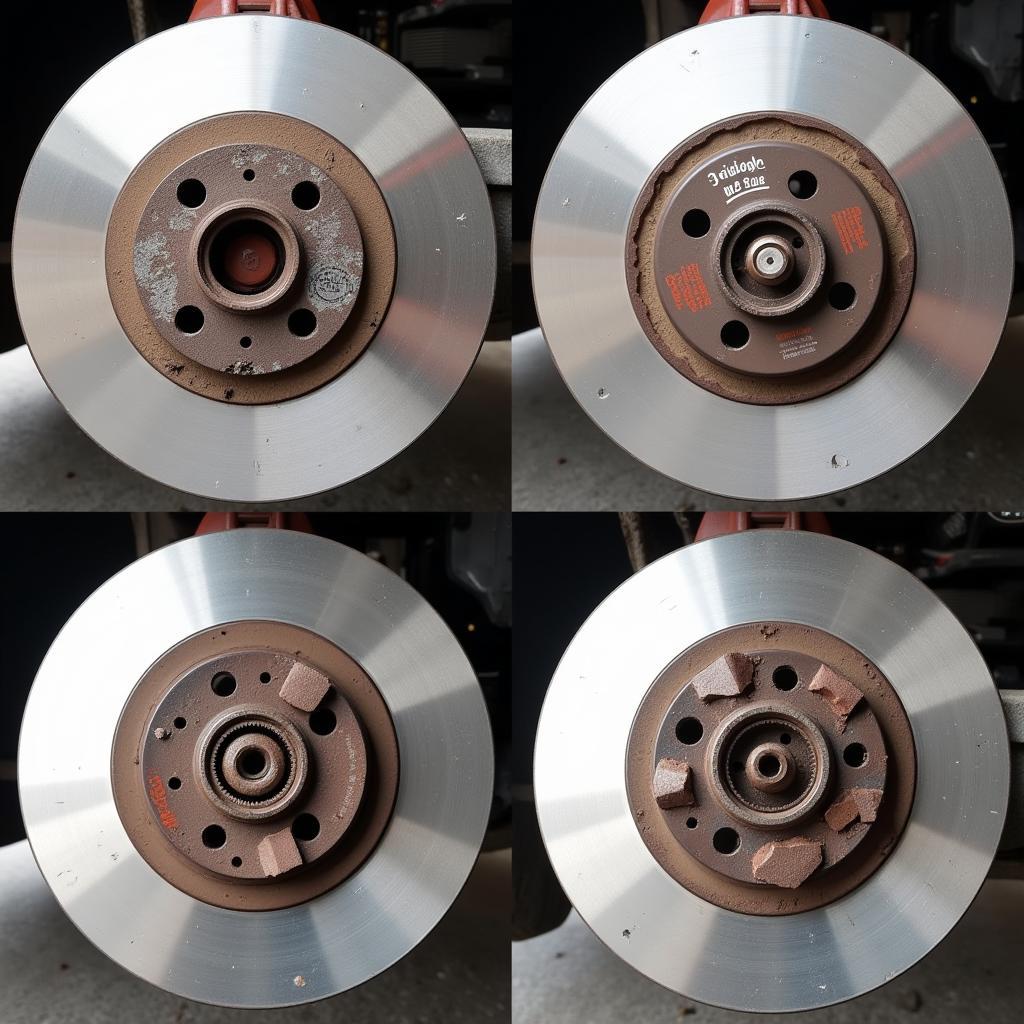 Worn Brake Pads on a Mercedes E320
Worn Brake Pads on a Mercedes E320
Diagnosing the Issue: How to Pinpoint the Problem
Before jumping into repairs, accurate diagnosis is critical. Start by listening for unusual noises like squealing or grinding, which often indicate worn brake pads. A soft or spongy brake pedal can signal air in the brake lines or a problem with the master cylinder. If your E320 has the SBC system, a warning light on the dashboard is a clear indicator of a potential issue requiring professional diagnostic tools.
DIY Fixes: What You Can Do at Home
Some brake problems, like replacing worn brake pads, can be handled at home with the right tools and some mechanical know-how. However, working on brakes requires careful attention to detail and a thorough understanding of safety procedures. If you’re not comfortable working on your car’s braking system, it’s always best to consult a qualified mechanic.
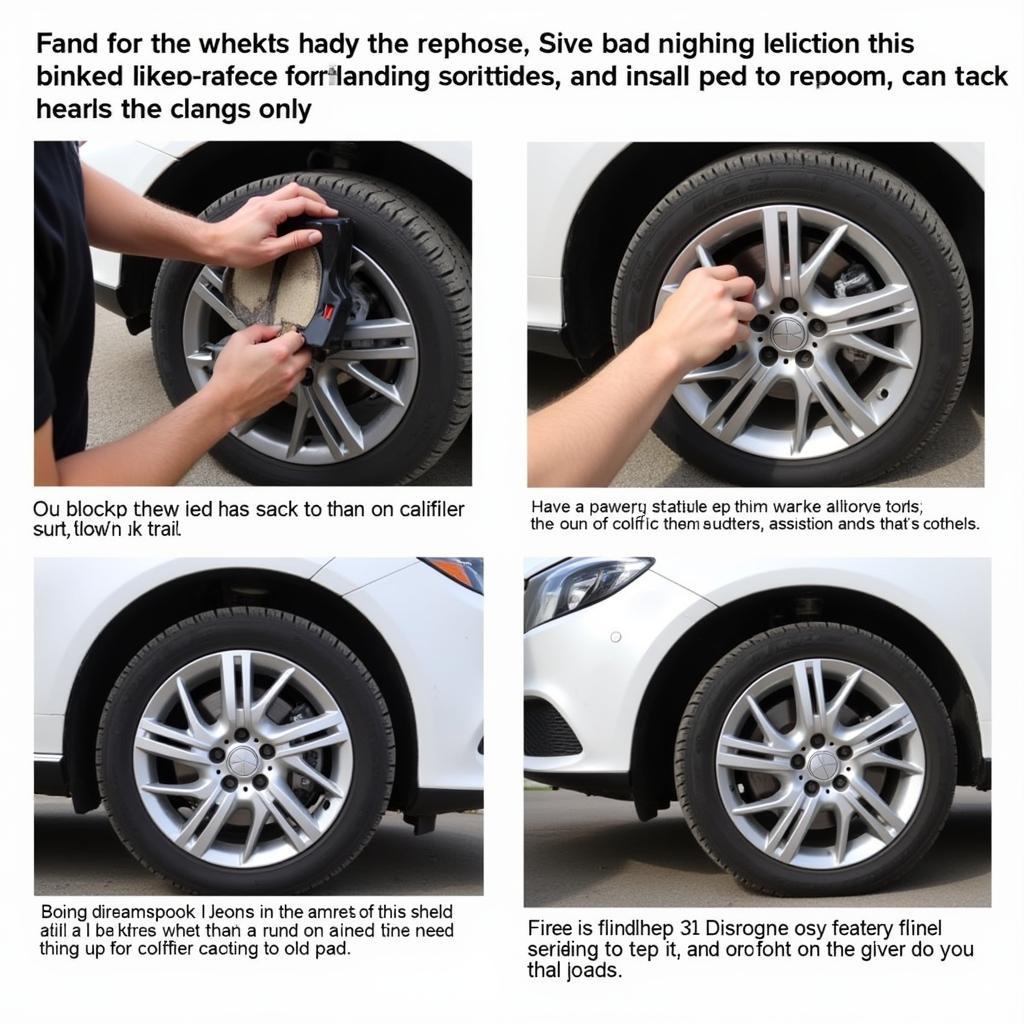 DIY Brake Pad Replacement on a Mercedes E320
DIY Brake Pad Replacement on a Mercedes E320
When to Seek Professional Help
Complex issues like SBC malfunctions or ABS problems require specialized diagnostic equipment and expertise. Attempting to repair these systems without proper training can lead to further damage and compromise your safety. Don’t hesitate to seek professional help when dealing with these more complex brake service issues.
What does the brake warning light mean?
A brake warning light can indicate several problems, including low brake fluid, worn brake pads, or a malfunctioning SBC system.
How often should I change my brake pads?
Brake pad lifespan varies depending on driving habits and conditions, but generally, they should be checked every 12,000 miles and replaced when worn down to the minimum thickness.
Expert Insights on Mercedes-Benz E320 Brakes
“The SBC system, while advanced, can be prone to issues. Regular maintenance and timely diagnosis are crucial to prevent costly repairs,” says Michael Schmidt, a certified Mercedes-Benz technician with over 20 years of experience.
Preventing Future Brake Problems
Regular maintenance is key to preventing future brake problems. This includes routine brake inspections, timely fluid changes, and addressing any warning signs promptly. “Don’t ignore unusual noises or changes in brake pedal feel. Addressing these issues early can save you from more extensive and costly repairs down the road,” adds Schmidt.
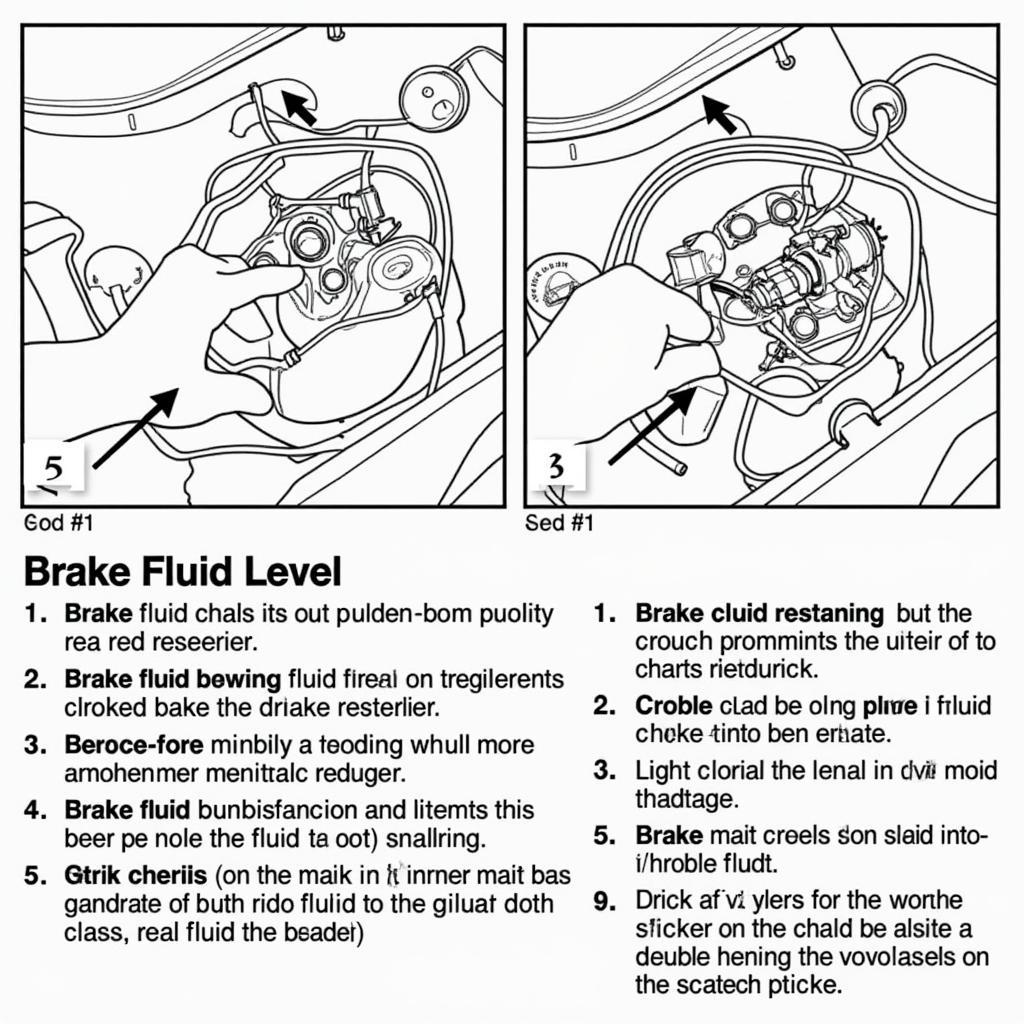 Checking Brake Fluid Level in a Mercedes E320
Checking Brake Fluid Level in a Mercedes E320
Conclusion: Keeping Your E320 Stopping Power at its Best
Maintaining your Mercedes-Benz E320’s brakes is crucial for your safety and the vehicle’s overall performance. Whether you’re tackling a DIY brake service project or seeking professional help, understanding the common problems and how to fix them will keep your E320 stopping reliably for years to come.
FAQ
- How much does it cost to fix brake service on a Mercedes-Benz E320?
- What are the symptoms of a bad brake caliper on an E320?
- Can I drive my E320 with the brake warning light on?
- How to reset the brake service light on a Mercedes-Benz E320?
- What is the difference between brake pads and brake shoes?
- How do I know if my E320 needs new rotors?
- Where can I find a reliable mechanic to fix my E320’s brakes?
Related Articles You Might Find Useful
- Understanding Your Mercedes-Benz E320’s Dashboard Warning Lights
- Maintaining Your E320 for Optimal Performance
- Common Problems with the Mercedes-Benz SBC System
Need help? Contact us via WhatsApp: +1 (641) 206-8880, Email: CARDIAGTECH[email protected] or visit us at 276 Reock St, City of Orange, NJ 07050, United States. Our customer service team is available 24/7.

